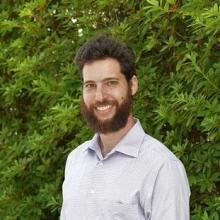Exploring International Security Studies: Daniel Arnon on Conflict, Critical Skills, and Careers

Adobe Stock
Daniel Arnon is an assistant professor in the School of Government and Public Policy and the principal researcher for the Political Terror Scale Project, an annual report that measures political violence and terror worldwide. Arnon researches international relations, conflict and contention, and human rights. His work has appeared in publications such as the British Journal of Political Science and the Journal of Conflict Resolution. In this Q&A, Arnon discusses the International Security Studies, or ISS, program, highlighting the career opportunities it prepares students for.
Please tell us about your research on conflict processes between individuals and the state.

My research focuses on conflict processes between individuals and the state, including individual violence against the state, namely terrorism and insurgency, and state violence against individuals, namely human rights violations and repression. My work has taken me in many different directions over the last few years, including surveys about perceptions of violence as a linchpin of the dynamics of conflict; how to measure human rights violations using machine learning, human coding, and the intersection of the two, as part of my role as principal investigator for the Political Terror Scale. This work relates to international security, broadly conceived.
Some of my work deals with big questions about international security, in the classic sense, but also within the realm of human security. My latest work has examined the contestation between individuals and organizations using violence and non-violence to challenge the state and how the state responds to these challenges in the context of the Israeli-Palestinian conflict, both contemporary and historical.
Please talk about the ISS program. Why it is beneficial for students?
The ISS program is a fantastic venue for advanced students looking to engage in topics in international security and to deepen their understanding of the world. In my introductory class — International Security Studies — we mostly cover broad topics of international security to lay the foundations for the more advanced classes on more specific topics. We discuss foundational topics like balance of power, alliances, democratic peace theory, and grand strategy. The course readings introduce students to the international security landscape, characterized by the rise of emerging power, the reach of non-state actors, and hybrid warfare tools. The program prepares students to analyze and understand the complexities of these changes.
What are some of the most valuable skills or knowledge students typically gain from the ISS program?
Our program is broad and offers a wide variety of different courses on different themes. There are courses on cyber-security, climate change, international trade/law/organization, diplomacy, national intelligence, armed and non-violent conflict, and emerging powers. Students benefit from our program due to its comprehensive nature, which encompasses a diverse range of perspectives and methodologies related to the concept of security. Our instructors consist of regular faculty in the School of Government and Public Policy and practitioners from the Department of State and Defense.
Our students graduate from the ISS program with the necessary knowledge and skills to understand traditional and non-traditional threats faced by the U.S. and the world community. Our interdisciplinary approach is aimed at providing a well-rounded education. Our students should be able to work in the fields of intelligence collection and dissemination, analysis, research, threat assessment, and evaluation of policy development.
What kinds of positions does the program prepare students for?
The program prepares students for careers in the public and private sectors, as well as in non-governmental organizations. Pursuing a master’s degree in international security studies equips students with a comprehensive understanding of the global landscape. Our curriculum aims to prepare students to make informed, data-driven decisions by enhancing their analytical skills and expanding their knowledge base. They should be well-prepared for positions that require the ability to produce policy briefs, research reports, intelligence, and risk analyses.
How might the ISS programs benefit someone transitioning out of federal roles and into academic or industry roles?
While traditionally the demand for expertise in international security has been the domain of government, increasingly we see the private sector, industry, and NGOs needing to tackle these hard questions as well. Whether it is a private firm evaluating risk from a security perspective to an NGO operating in a challenging security environment, the demand for understanding security in a broad sense seems to be increasing. Many ISS students have found rewarding security careers in the private sector by focusing on strategic intelligence and analysis, emergency management, or corporate security management.
Can you share any specific courses or projects in the ISS program that have had a significant impact on your own work or perspective?
My main involvement with the ISS program thus far has been teaching the International Security class, which serves as a broad introduction to the ISS curriculum. The discussions I’ve had with students in this class have been impactful on my work in two main ways. First, going “back to basics” helps elucidate the main concepts I work with daily, whether it’s in the world of studying insurgency and terrorism to measuring human rights. Second, in my class, the discussions often revolve around contemporary topics and conflicts, which I engage with in my work. Seeing the diversity of responses to similar questions and challenges helps me rethink my central prisms on this topic and gives me a better understanding of how professionals in the field are addressing these topics.
##

